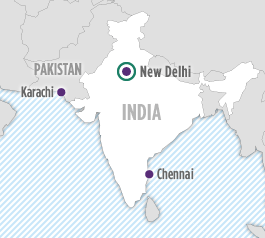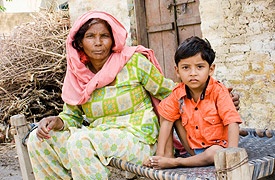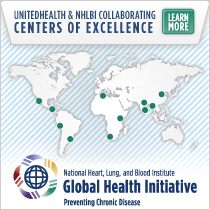India (New Delhi) - Public Health Foundation of India

Center of Excellence
Center for cArdiometabolic Risk Reduction in South Asia (COE-CARRS)
Public Health Foundation of India
New Delhi, India
Principal Investigator: Dorairaj Prabhakaran, M.D.
COE-CARRS Website
Center of Excellence Activity Sites
- New Delhi, India
- Chennai, India
- Karachi, Pakistan
Developed Country Partner
Emory University, Atlanta, Georgia, USA
Principal Investigator: K.M. Venkat Narayan, M.D.
Background

Asian Indians are projected to account for 40 to 60 percent of the global cardiovascular disease (CVD) burden within the next 10 to 15 years. Of the CVD-related deaths in India, 35 percent occur in those between 35 to 64 years old as compared to only 12 percent in the United States.
Cardiometabolic diseases, previously attributed solely to affluent urban residents, are now increasingly prevalent in lower socioeconomic groups in South Asia, and CVD is currently the leading cause of death in both urban and rural India. Projections suggest India and Pakistan’s national income losses from 2005 to 2015 will amount to US $267 billion due to cardiovascular and diabetes deaths alone. Of these, the economically active age range (25 to 64 years old) will bear the greatest morbidity and mortality, resulting in loss of human capital and productivity, perpetuating poverty, and potentially stifling development.
Objectives
Establish a Center of Excellence for prevention and control of cardiometabolic diseases in South Asia for population-based applied research and training.
Research Activities

- Develop and implement a model sentinel surveillance scheme in three locations (two in India and one in Pakistan), capturing population-based cardiometabolic risk factor and events data.
- Develop and test integrated, multi-factorial CVD risk reduction delivery strategies. The aim is to test the effectiveness and cost-effectiveness of an intensive delivery strategy which targets glucose, blood pressure, and lipid control, as well as processes of care among individuals with type 2 diabetes who are at moderate to high risk for CVD.
Training
Build local capacity and leadership by offering opportunities for training in applied research, such as postdoctoral and junior faculty development, doctoral training at partner institutions through other mechanisms, and short courses.
Other Partner Organizations
All India Institute of Medical Science
New Delhi, India
Madras Diabetes Research Foundation
Chennai, India
The Aga Khan University
Karachi, Pakistan
Funding
The Center of Excellence in New Delhi receives funding from UnitedHealth Group and the NHLBI.
Last Updated: August 27, 2012

















 (9 MB)
(9 MB)
 Twitter
Twitter
 Facebook
Facebook YouTube
YouTube